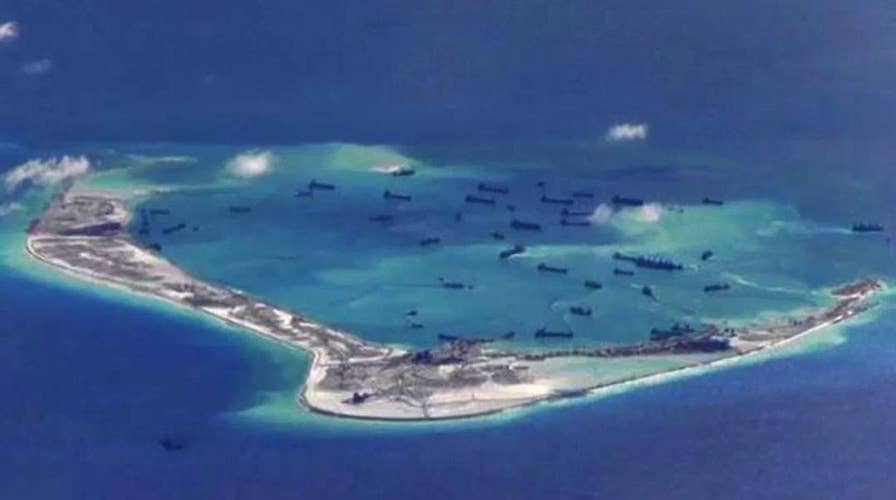US Navy: China is clearly militarizing the South China Sea
Gordon Chang, Asia analyst and author of 'The Coming Collapse of China,' says Beijing's actions will destabilize the region
BEIJING – China has ordered its armed forces to end all paid outside work within the next three years as part of a push to make the world's largest standing military more professional and battle ready.
A Defense Ministry notice viewed Monday said both the regular army and the paramilitary People's Armed Police would be covered under the ban. It identified no specific fields but is thought to mainly target military art troupes, publishing houses and hospitals that accept paying civilian patients.
The ban is a "major political task concerning the overall scope of military construction and development," the notice said, emphasizing the need for officers and troops to adhere to the guidance of the ruling Communist Party headed by President Xi Jinping, who also leads the party and government commissions that control the armed forces.
The 2.3 million-member People's Liberation Army was ordered more than a decade ago to divest itself from its vast business empire that included factories and transport firms and was viewed as fueling corruption and slack discipline.
The latest round of reforms have reorganized parts of the command structure and will reduce troop numbers by 300,000, mainly by culling non-combat units and those using outdated equipment.
The reforms are also seeing a shift away from the land forces, which now account for about 73 percent of total troop strength, and more toward the navy and air force that are seen as responsible for dealing with the main perceived threats to China's interests — a conflict over control of the South China Sea and a move by self-governing Taiwan toward formal independence that China has threatened to respond to with force.
After decades of large annual increases, the defense budget is also growing at a smaller pace in line with lower growth in the overall Chinese economy.
Military spending will rise 7.6 percent this year, despite tensions with China's neighbors over disputed portions of the South China Sea. The military budget of 954 billion yuan ($146.5 billion) keeps China in second place in global defense spending behind the United States.

